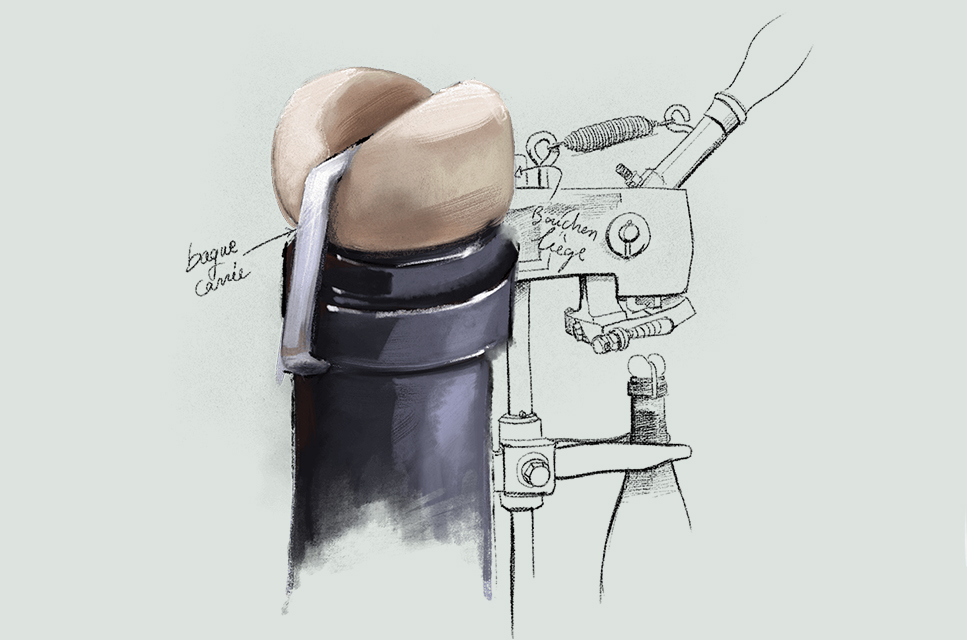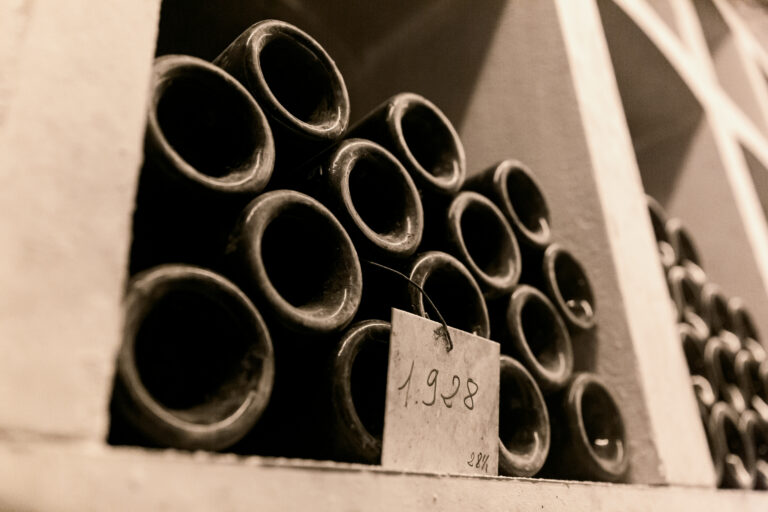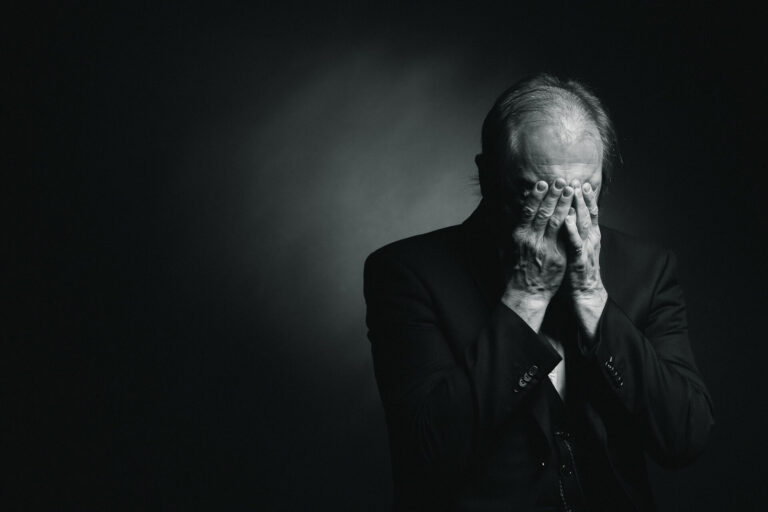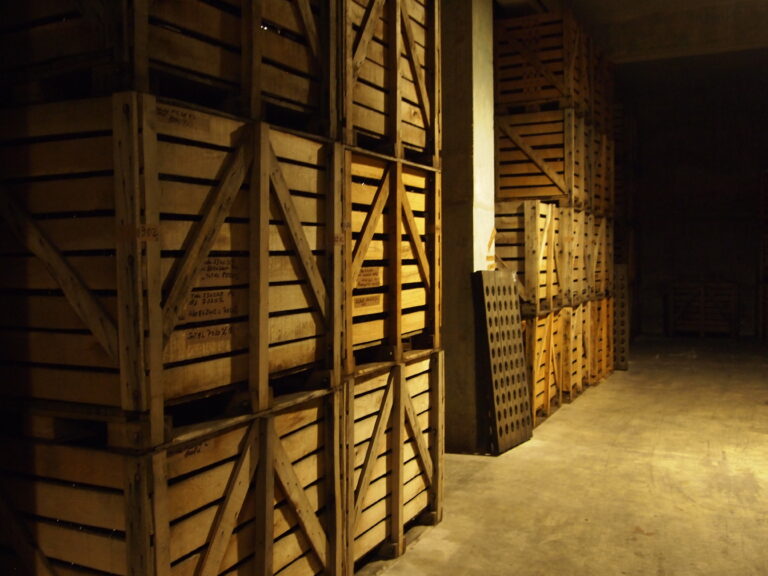Björnstierne Antonsson aka TheChampgneSommelier has written an article on Champagne Fleury – a pioneer in biodynamics. [read the full champagne story]
Estimated reading time: 7 minutes

Champagne Fleury:
A Pioneer in Biodynamic Viticulture in Champagne
I. Origins and the Legacy of the Fleury Family
The story of Champagne Fleury begins in the heart of the Côte des Bar, an area known for its distinctive terroir and Pinot Noir grapes. Situated in Courteron, in the southern reaches of the Champagne appellation, the Fleury estate has been family-owned since its inception in the late 19th century. The family’s dedication to viticulture is rooted in generations of experience, with a strong commitment to respecting the land.
In 1895, Emile Fleury, the founder, made the critical decision to plant vines in Courteron. The Fleury family’s vineyards began to take shape, and the estate gradually built its reputation for producing high-quality grapes. However, the true transformation of the Fleury estate occurred under the leadership of Emile’s grandson, Jean-Pierre Fleury, who took over in the 1970s.
II. The Shift to Biodynamics: Visionary Beginnings
Jean-Pierre Fleury is celebrated as a visionary figure in Champagne’s biodynamic movement. In the 1970s, Jean-Pierre faced a critical juncture. The rise of industrialized viticulture, with its reliance on chemical fertilizers and pesticides, threatened the long-term health of the vineyards. Seeking a sustainable path forward, Jean-Pierre began exploring alternative methods of farming.
In 1989, Fleury made history by becoming the first Champagne house to adopt biodynamic farming practices across its entire vineyard. This bold step set a precedent, marking a significant departure from conventional practices in the Champagne region. Biodynamics, rooted in the principles of Austrian philosopher Rudolf Steiner, emphasizes a holistic approach to agriculture, treating the vineyard as a living ecosystem. It involves the use of natural preparations, celestial calendar alignment, and the promotion of biodiversity.

III. Biodynamic Practices in Fleury’s Vineyards
Implementing biodynamic practices required a paradigm shift. Champagne Fleury embraced a meticulous process to rejuvenate their soil and vines:
1. Soil Health and Composting: The cornerstone of biodynamic farming is enriching the soil’s vitality. The Fleury family replaced chemical inputs with organic composts and biodynamic preparations like horn manure (500) and silica (501). These substances help enhance soil structure, improve microbial activity, and boost the vines’ natural resilience.
2. Biodiversity in the Vineyards: The Fleury estate promotes biodiversity by planting cover crops between the vine rows, encouraging beneficial insects, and cultivating hedgerows. These efforts create a balanced ecosystem that reduces the need for artificial interventions.
3. Celestial Rhythms: Biodynamic viticulture pays attention to lunar and planetary cycles, which are believed to influence plant growth. Fleury follows a biodynamic calendar for key tasks like pruning, planting, and harvesting, aligning vineyard activities with natural rhythms.
4. Animal Integration: Horses are used for plowing certain parcels, reducing soil compaction and fossil fuel dependence. Animals also contribute to natural fertilization, further enhancing the ecological balance of the vineyards.
IV. Champagne Fleury’s Vineyard Profile
The Fleury estate spans approximately 15 hectares, primarily planted with Pinot Noir, which thrives in the limestone-clay soils of the Côte des Bar. Chardonnay and Pinot Blanc, a rarer varietal in Champagne, complement the vineyard’s diversity. These grape varieties are cultivated with precision, ensuring they express the unique terroir of Courteron.
The microclimate of the Côte des Bar, characterized by slightly warmer conditions compared to northern Champagne, allows the grapes to achieve optimal ripeness. Combined with biodynamic practices, this results in fruit with exceptional purity, balance, and a vivid expression of the land.
V. The Winemaking Philosophy
The Fleury family’s commitment to biodynamics extends into their winemaking processes. Their approach is minimalist, respecting the integrity of the grapes and the terroir. Key aspects of their winemaking philosophy include:
1. Hand-Harvesting: Grapes are hand-picked at peak ripeness to ensure quality. This meticulous selection process preserves the fruit’s natural flavors and prevents damage.
2. Natural Fermentation: Indigenous yeasts, present on the grape skins, drive the fermentation process. This method allows for a more authentic expression of the vineyard’s character, avoiding the homogenization often caused by commercial yeasts.
3. Minimal Intervention: The use of sulfur is kept to a minimum, and the wines are neither filtered nor fined excessively. This approach ensures that the wines retain their complexity and natural vibrancy.
4. Aging in Oak: Fleury utilizes oak barrels for certain cuvées, adding depth and structure without overpowering the wine’s intrinsic qualities.

VI. Iconic Cuvées of Champagne Fleury
The Fleury family crafts a range of Champagne cuvées, each reflecting their biodynamic ethos and the terroir of the Côte des Bar. Notable offerings include:
1. Cuvée Fleur de l’Europe: A blend of Pinot Noir and Chardonnay, this Champagne is emblematic of Fleury’s commitment to biodynamics. It offers a vibrant expression of fruit, minerality, and elegance.
2. Cuvée Boléro: Made entirely from Pinot Noir, this Blanc de Noirs showcases the depth and richness of the varietal, with notes of red fruit, spice, and a creamy texture.
3. Cuvée Blanc de Noirs Brut Nature: A zero-dosage Champagne that highlights the purity of Pinot Noir and the precision of biodynamic viticulture.
4. Cuvée Rosé de Saignée: A rare rosé crafted using the saignée method, delivering intense aromas of red berries and a vibrant, structured palate.
5. Cuvée Millésimée: Produced only in exceptional years, this vintage Champagne is a testament to the estate’s dedication to excellence and the unique characteristics of each harvest.
VII. Fleury’s Influence on Champagne and Beyond
The impact of Champagne Fleury extends far beyond their vineyards. By championing biodynamics, they have inspired a growing movement within Champagne and the wider wine industry. Today, numerous producers in Champagne are adopting sustainable practices, recognizing the long-term benefits for the environment, vine health, and wine quality.
Fleury’s pioneering spirit has also garnered international acclaim. Their wines are celebrated for their authenticity, depth, and ability to capture the essence of the Côte des Bar. Critics and wine enthusiasts alike appreciate Fleury’s dedication to sustainability and the exceptional quality of their Champagnes.
VIII. Challenges and Triumphs
Embracing biodynamics was not without its challenges. In the early years, Jean-Pierre Fleury faced skepticism from peers and industry leaders. Biodynamics was often dismissed as esoteric or impractical. However, the tangible improvements in vine health, soil vitality, and wine quality vindicated Fleury’s approach.
The changing climate poses new challenges, but Fleury’s biodynamic practices place them in a strong position to adapt. Their focus on soil health and biodiversity enhances the vineyard’s resilience to extreme weather events and shifting growing conditions.
IX. A Family Legacy: The Next Generation
Today, Jean-Pierre Fleury’s children, Jean-Sébastien, Morgane, and Benoît, continue the family tradition. They bring fresh perspectives while remaining true to their father’s vision. Under their stewardship, Champagne Fleury continues to innovate, exploring new techniques and expanding their reach in the global market.
X. Conclusion
Champagne Fleury stands as a beacon of innovation and sustainability in the Champagne region. Their unwavering commitment to biodynamic viticulture has not only preserved the health of their vineyards but also elevated the quality of their wines. By challenging conventions and pioneering new methods, Fleury has left an indelible mark on the world of wine.
As the Champagne industry navigates the challenges of the 21st century, Champagne Fleury’s journey serves as an inspiring reminder of the power of vision, perseverance, and respect for nature. Their legacy is not just about crafting exceptional wines but also about redefining what it means to be a steward of the land.






